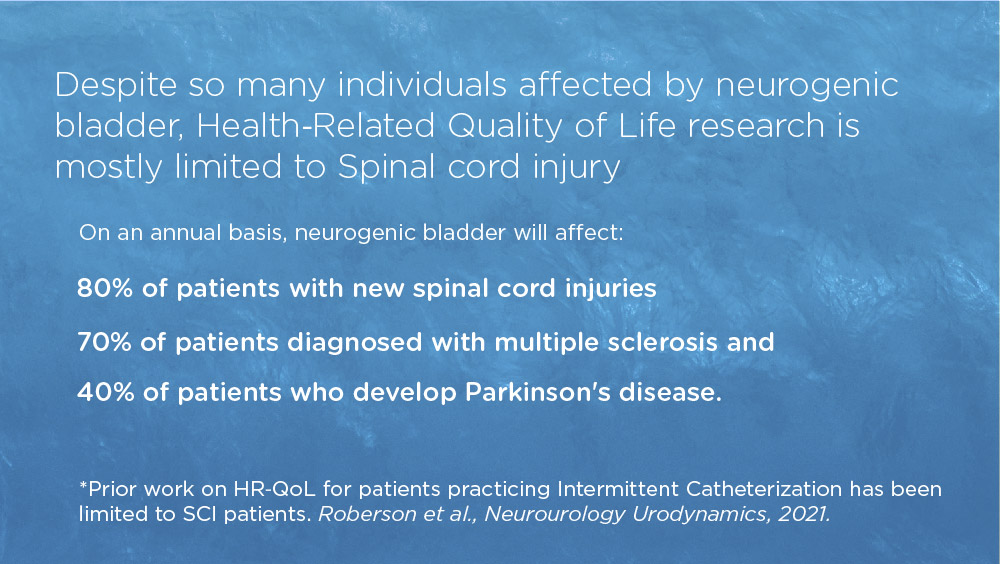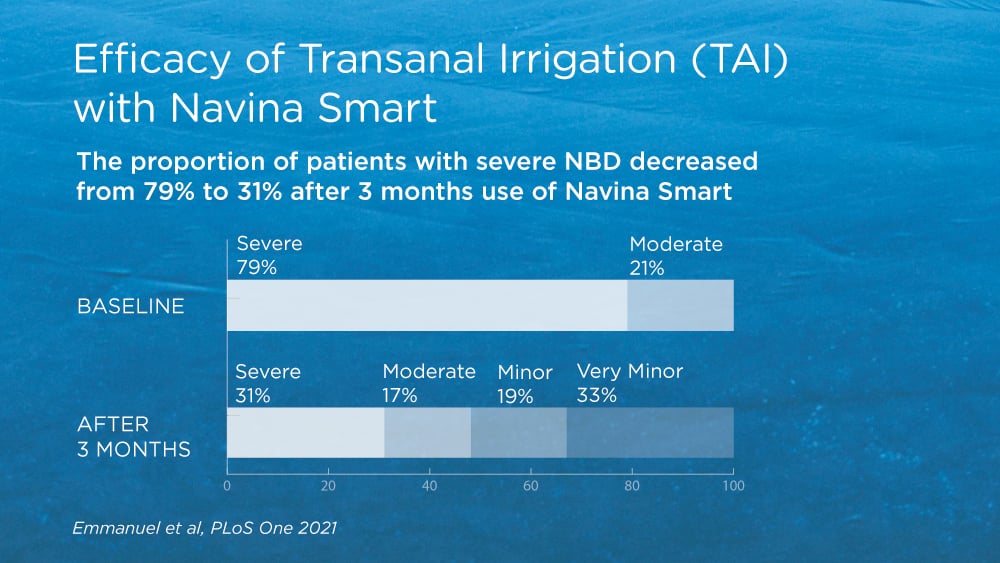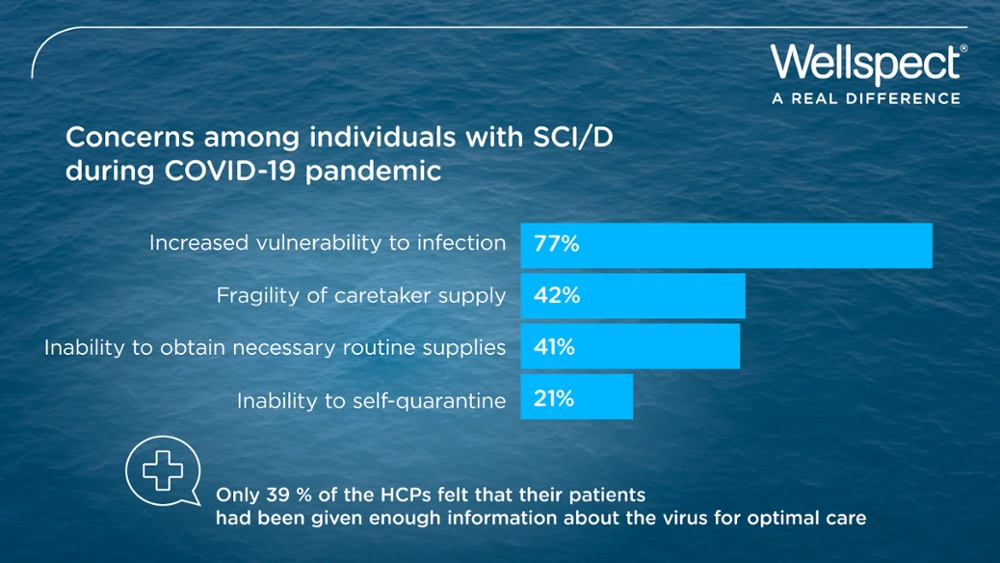For a successful therapy, it’s important to find out the patients’ actual experiences when performing intermittent catheterization (IC). But a lack of research can provide obstacles. Have we heard directly from the patient about the difficulties they face when approaching IC?
A recent study seeks to remedy this neglect in research; it involved a total of 200 adults who had independently been performing IC for at least 6 months across the US.
Read More
Topics: Urinary Tract Infection (UTI), Neurogenic bladder, Spinal Cord Injury (SCI), Parkinsons disease, Intermittent Catheterization, multiple sclerosis
Emmanuel et al, PLoS One 2021. The use of transanal irrigation (TAI) with Navina™ Smart, is an effective and well tolerated treatment for bowel dysfunction.
Read MoreTopics: Bowel management, Transanal irrigation (TAI), Spinal Cord Injury (SCI), Neurogenic bowel, Bowel dysfunction, Fecal incontinence, constipation
This is the first publication that assess the number one concern individuals with spinal cord injury or disorder (SCI/D) may have related to the COVID-19 pandemic. The data spans over six continents and describes the vulnerable situation for these individuals in the pandemic crisis.
Read MoreTopics: Spinal Cord Injury (SCI), @Coronavirus
One common reason behind lower urinary tract dysfunction is neurological damage secondary to spinal cord injury (SCI), spina bifida, or multiple sclerosis. Even though the everyday situation is different for people living with these conditions, they share many problems linked to their bladder.
Read MoreTopics: Neurogenic bladder, Spinal Cord Injury (SCI), Multiple Sklerose (MS)
Spinal cord injury (SCI) can be caused by either traumatic or non-traumatic events. The most common causes include road accidents, violence, and falls.
Read MoreTopics: Science Alert, Spinal Cord Injury (SCI)







